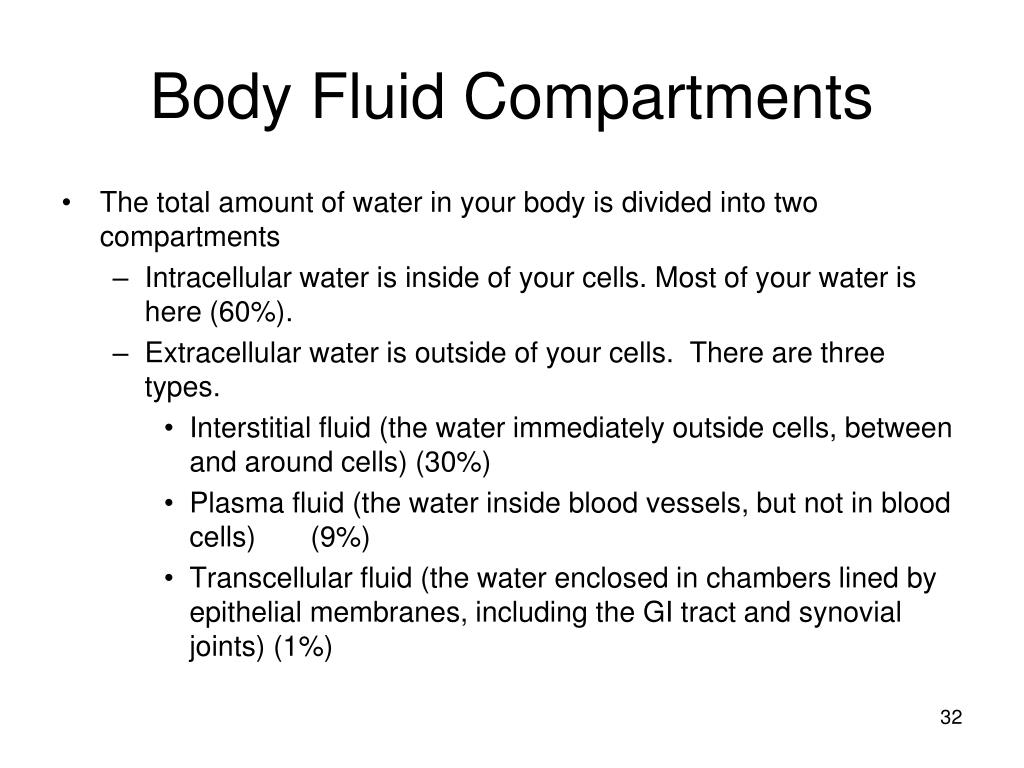
The decrease in the ICF space was correlated with the increase in plasma osmolality (r = -0.74, P < 0.02). The change in the extracellular fluid space (ΔECF) was estimated from chloride distribution and the change in the intracellular fluid space (ΔICF) was calculated by subtracting ΔECF from ΔTW. We measured plasma volume, plasma osmolality, and, , and in plasma, together with sweat and urine volumes and their ionic concentrations before and after dehydration. After dehydration, the subjects rested for 1 h in a thermoneutral environment (28☌, <30% rh), after which time the changes in the body fluid compartments were assessed. These results suggest that the maintenance of circulating blood volume during dehydration induced by exercise in the heat is a function of the body's ability to mobilize fluid from the intracellular fluid space, which itself is linked to the sodium concentration in sweat.Ībstract = "To investigate the influence of in sweat on the distribution of body water during dehydration, we studied 10 volunteer subjects who exercised (40% of maximal aerobic power) in the heat for 90-110 min to produce a dehydration of 2.3% body wt (ΔTW). We also found a linear relationship between ΔECF and change in plasma volume (r = 0.77, P < 0.01). Fluid movement out of the ICF space attenuated the decrease in the ECF space.
#THE BODY FLUID COMPARTMENTS CHANGE FREE#
Free water loss, which is analogous to 'free water clearance' in renal function, showed a strongly inverse correlation with in sweat (r = -0.97, P < 0.001). The increase in plasma osmolality was a function of the loss of free water (ΔFW), estimated from the equation ΔFW = ΔTW - (loss of osmotically active substance in sweat and urine)/(control plasma osmolality) (r = -0.79, P < 0.01). It also involves identifying and treating what caused the imbalance.To investigate the influence of in sweat on the distribution of body water during dehydration, we studied 10 volunteer subjects who exercised (40% of maximal aerobic power) in the heat for 90-110 min to produce a dehydration of 2.3% body wt (ΔTW). Treatment helps you to manage the imbalance. Some medicines, vomiting, diarrhea, sweating, and liver or kidney problems can all upset your water balance. If something upsets this balance, you may have too little water ( dehydration) or too much water (overhydration). The amount of water that you take in should equal the amount you lose. This can happen when the amount of water in your body changes. The levels of electrolytes in your body can become too low or too high. You get them from the foods you eat and the fluids you drink. Sodium, calcium, potassium, chloride, phosphate, and magnesium are all electrolytes.





 0 kommentar(er)
0 kommentar(er)
